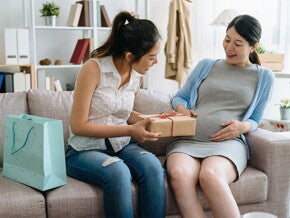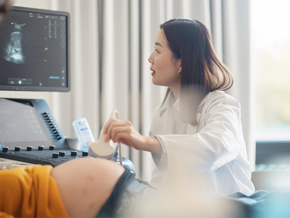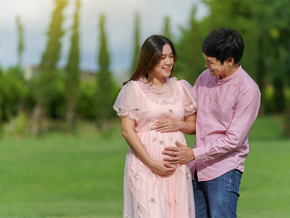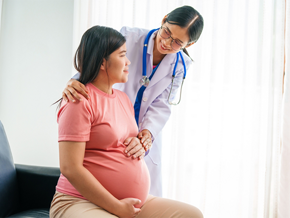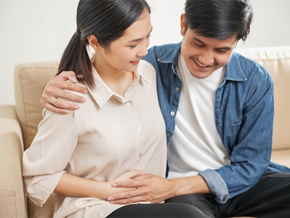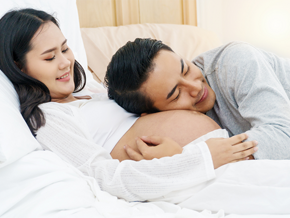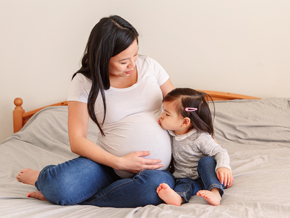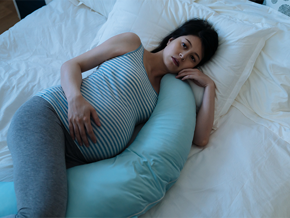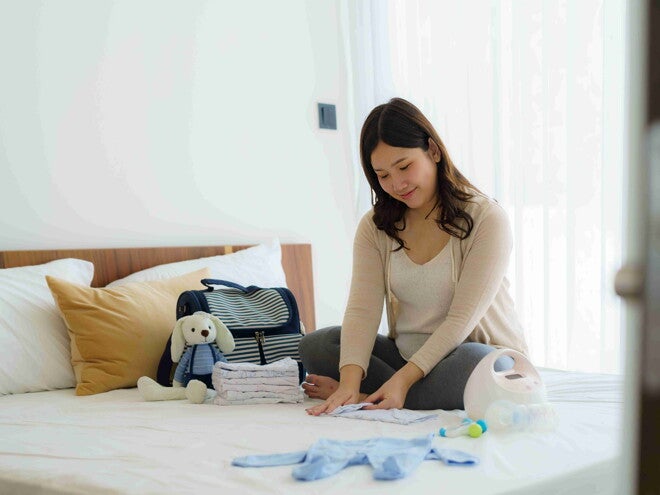
Yay, you're now six months along. Have you done your mom-and-baby hospital bag checklist? You may have the list all in your head, but you're prepping for one of the biggest days of your life. You want to write this down, so you're not scrambling in those final days before your due date. But, good news, we've already done the packing list for you!
Here's the ultimate hospital bag checklist for mom and baby that covers everything you'll need for delivery to save you a lot of last-minute stress (and possibly a very frantic partner).
Maternity Hospital Bag Checklist
Hospitals will provide most of what you need during your labor and delivery day. But you may want to pack personal items that make you feel reassured and calm.
Documents
Organize these documents in a folder to save you a lot of stress during admission and discharge.
- Birth plan. Talk to your ob-gyn and the hospital about your birth plan well in advance. This way, everyone is on the same page. Make sure to have a few copies for your partner and the medical team on delivery, just in case.
- IDs and forms. Bring HMO (Health Maintenance Organization) card, insurance records, or PhilHealth ID. You may be asked to accomplish PhilHealth forms to avail PhilHealth benefits. You may be asked to present valid government IDs during admission.
Comfort and essentials
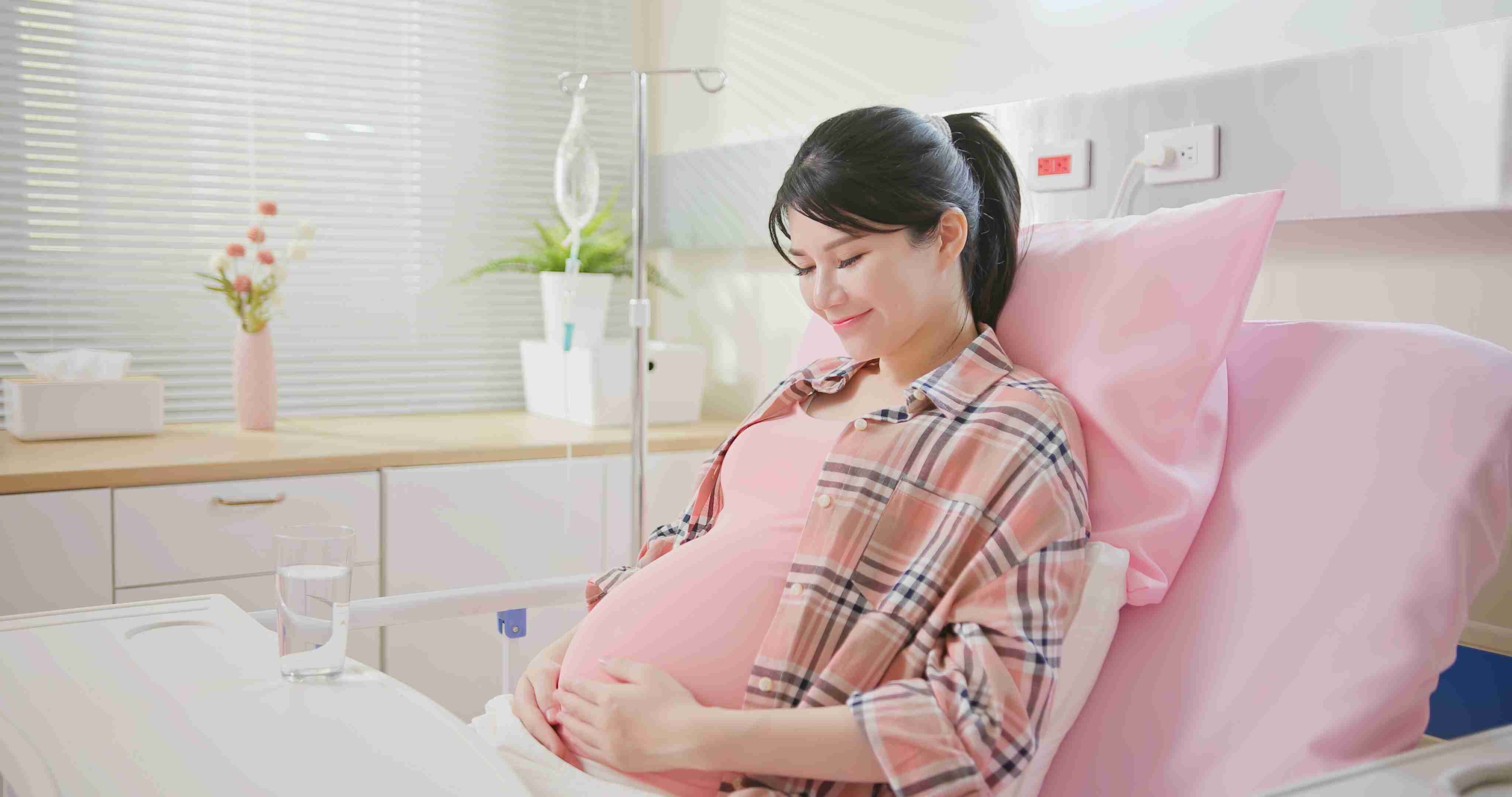
Check with your hospital if it's okay if you prefer to wear your clothes and not a a hospital gown.
While hospitals may provide you with essentials like a gown and toiletries, there are other things to prepare for giving birth that can give you comfort.
- Charger. Keep your phone charged for important HMO or insurance emails and to capture the first moments with your baby during labor.
- Snacks and candy. Lollipops and gum can help with dry mouth during labor, but check with your doctor about the hospital's eating policy. For example, you can't eat if you're having a C-section. After delivery, bring easy snacks like crackers, fresh fruit, or protein bars to enjoy.
- Hot water bag. Studies have shown that gentle heat therapy can help decrease pain intensity and duration of labor so a hot water bag may come in handy.
- Comfortable clothing. Choose breastfeeding-friendly sleepwear (opens in the front) and a cozy robe for those walks in the hallways after delivery.
- Hair essentials. Labor can be sweaty business, so bring hair ties to keep your hair out of your face during labor.
- Nursing bras. Your breasts will grow heavier because your body is revving up milk production, so you'll need the support.
- Lip balm, skin care, and makeup. Hospital air-conditioning can dry your skin, so pack your favorite lip balm and moisturizer. Don't be shy applying makeup if it makes you feel more like yourself during or after birth.
- Slippers. Choose safe and comfy footwear that’s easy to slip on and off for hallway walks.
- Toiletries. Having familiar scents from your toothpaste and deodorant to your hair care and body wash can make your hospital stay more pleasant.
Postpartum recovery needs
After giving birth, your body will need time to heal. You'll want these items before going home.
- Breastfeeding pads. These pads help absorb excess milk and prevent leaks while providing gentle protection for your breasts between feedings.
- Nipple cream. Breastfeeding can be rough on sensitive skin, and a nipple cream can soothe the pain.
- Maternity pads and extra underwear. Expect postpartum bleeding to be heavy. Pick thick maternity pads and roomy underwear to make those first few days easier.
- Going-home outfit. You'll still look a few months pregnant after giving birth since it takes time for your uterus to shrink. So, pack the comfiest dress, something soft and loose.
Newborn Hospital Checklist
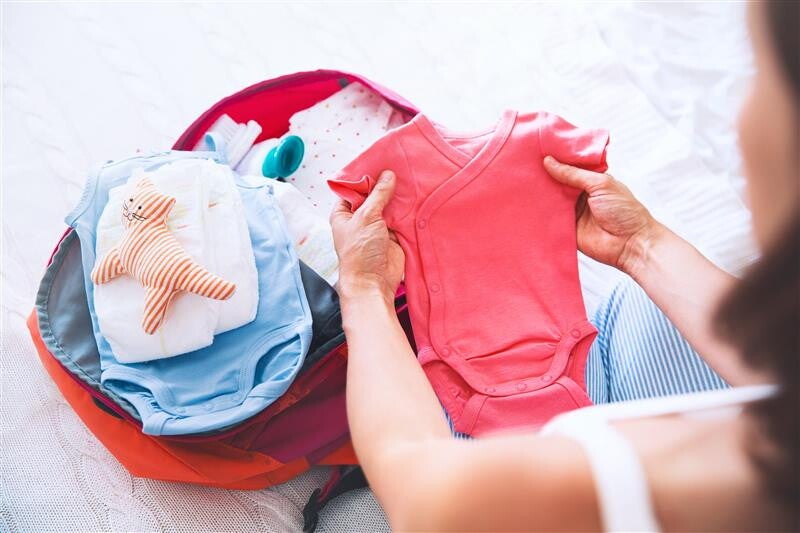
Complete your baby hospital bag checklist at the start of your third trimester so you don't have to rush packing.
Now that you've covered your essentials, it's time to put together a list of things your newborn will need.
Clothing
Your baby won’t need a lot of clothes, but here are some must-haves.
- Tie-shirt or onesies (3 to 4 pieces). Choose soft, breathable options for your baby’s delicate skin, and bring extras for spit-ups and leaks.
- Booties and mittens (2 to 3 pairs). These prevent their hands from scratching themselves and keep their feet warm.
- Bonnet. You want to regulate your baby's temperature, especially in air-conditioned areas.
- Swaddle or blanket (2 to 3 pieces). This keeps your baby snug while sleeping and simulates the feeling of being held, which is comforting on the ride home.
Newborn hygiene
Add these to your baby hospital bag checklist to keep your little one dry and clean.
- Diapers (12 to 15 pieces). Whether you choose disposable or cloth diapers, opt for newborn sizing for a perfect fit.
- Baby wipes. These are useful for cleaning your baby between diaper changes and wiping down any mess. Choose gentle, unscented wipes.
- Diaper rash cream. Diaper rash can happen anytime, so keep this on hand for your baby's delicate skin.
- Bimpo and burp cloths. You can't have too many of those soft bimpo! Use it to wipe your little one while feeding or for quick clean-ups.
Things to Prepare for Your Partner or Support Person
Whoever accompanies you should also add their essentials to your baby hospital bag checklist.
- Wallet. From parking to snacks to hospital bills, you and your support person will need cash or a credit card to settle payments and satisfy food cravings.
- Change of clothes. They'll stay in the hospital for the same length as you after all.
- Toiletries. Pack an extra toothbrush (you can share toothpaste), deodorant, razor, and disinfecting alcohol.
- Snacks and drinks. Your partner needs to munch on something yummy to ease their anxiety especially if they are not allowed in the delivery room.
- Phone charger. Your partner will need their own, especially since they're responsible for documenting those first few moments with your little one!
- Pillow and blanket. Not all hospitals offer comfortable sleeping arrangements for companions. But check the hospital policy because some do not allow you to bring extra beddings.
When to Pack Your Hospital Bag
You can pack at the beginning of your third trimester or six months into your pregnancy. This gives you enough packing time in case the baby comes early. But typically, you can arrange your pregnancy hospital bag checklist around 34 weeks or in your eighth month.
Once you've packed your bag (or bags), keep it somewhere easy to grab—like by the front door or in the car—so you or your support person can quickly find it when the time comes.
Hospital Bag Checklist Reminders
As you prepare your checklist, don't forget these reminders to ensure everything goes smoothly before, during and after you give birth:
Check with your hospital
Before packing your bag, ask your hospital for any specific requirements, including the supplies they will provide during your stay, so you can leave those out of your checklist.
Install your car seat
Children 12 years and below are legally required to be in a car seat. Make sure to get one before your due date and install it correctly to have peace of mind when taking your little one home.
Consider a "baby go-bag" for emergencies
If you're concerned about the possibility of early labor, pack a smaller bag with essentials to bring during check-ups or for quick trips to the hospital.
Prepping your and your baby's hospital bag checklist means you're one step closer to finally holding your bundle of joy in your arms! You're excited, but you can't help but worry. Stay calm and trust that you've done everything possible to prepare for the baby's arrival.
Save or bookmark this guide on your phone so you can always check it whenever you're worried you may have forgotten something. You can also view the video below for a visual hospital bag checklist!











